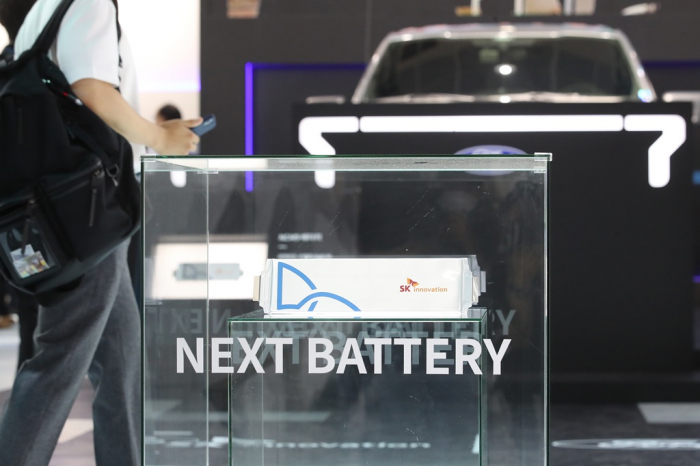Korea battery makers at risk from reliance on China materials
Local producers are diversifying supply sources of battery materials or forming joint ventures with Chinese partners
By Feb 16, 2022 (Gmt+09:00)
LG Chem to sell water filter business to Glenwood PE for $692 million


Kyobo Life poised to buy Japan’s SBI Group-owned savings bank


KT&G eyes overseas M&A after rejecting activist fund's offer


StockX in merger talks with Naver’s online reseller Kream


Mirae Asset to be named Korea Post’s core real estate fund operator



South Korea’s secondary battery makers face a risk from heavy reliance on Chinese raw materials, while the industry has sought measures to ensure a stable supply of resources amid surging prices. The battery producers are diversifying supply sources or setting up joint ventures with Chinese companies.
LG Energy Solution Ltd., the world’s second-largest battery maker, signed a deal with Australia-listed lithium miner Vulcan Energy Resources to buy 45,000 tons of lithium hydroxide from its German project over five years starting in 2025 late last month. The volume is enough to produce batteries for 1.1 million electric vehicles that can drive more than 500 kilometers with a single charge.
The South Korean battery producer also agreed with other miners in Chile, Canada and Australia for lithium supplies.
Its local rivals sought cooperation with Chinese firms to secure stable supply from the mainland. SK Innovation Co., the parent of SK On Co., established a production joint venture with Chinese companies including EVE Energy Co., a battery maker.
That came as an excessive reliance on raw materials from China could jeopardize a stable supply chain of battery ingredients, industry sources said. Last year, the diesel exhaust fluid shortage due to China’s suspension of urea exports was a blow to Asia’s fourth-largest economy.
South Korea’s imports of battery raw materials from China have been increasing.
Purchases of tungsten oxide, calcium hydroxide and manganese hydroxide, base materials used to make precursors, a battery component, totaled $2.7 billion last year, according to the Korea Customs Service. Of the total, the country bought $2.5 billion, or 93.1% from China, up from 83.9% in 2018.
The mainland accounted for 67.7% of South Korea’s imports of synthetic graphite, a raw material for anode, another battery material.
CHINA’S DOMINANCE
China is a global major player, which, processes raw materials into battery ingredients, dominating the world’s mineral resources market.
China is the world’s top producer of lithium compounds such as lithium hydroxide and lithium carbonate, although about 60% of the world’s lithium reserves are concentrated in the Lithium Triangle around the borders of Argentina, Bolivia and Chile. Lithium is a key material for cathode, a battery component.
Chinese companies raised product prices, tracking higher raw material costs, industry sources said.
“Surging prices of lithium, nickel and cobalt, core raw materials for batteries, lifted prices of components that Chinese companies processed and produced,” said one of the sources.
The lithium price has soared 46.5% so far this year, standing at 387.5 yuan ($61.1) per kilogram on Feb. 11. It needs 1 ton of precursor and 0.5 ton of lithium to produce 1 ton of cathode.
Write to Kyung-Min Kang at kkm1026@hankyung.com
Jongwoo Cheon edited this article.
-
 BatteriesSK on eve of jackpot from NYSE debut of US battery maker SES
BatteriesSK on eve of jackpot from NYSE debut of US battery maker SESFeb 03, 2022 (Gmt+09:00)
3 Min read -
 Battery materialsChina’s tighter grip on supply chain hurts Korean battery makers
Battery materialsChina’s tighter grip on supply chain hurts Korean battery makersDec 27, 2021 (Gmt+09:00)
4 Min read


